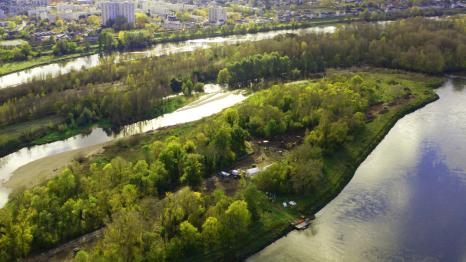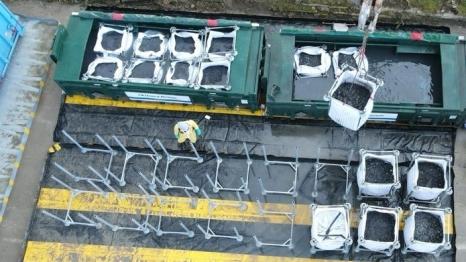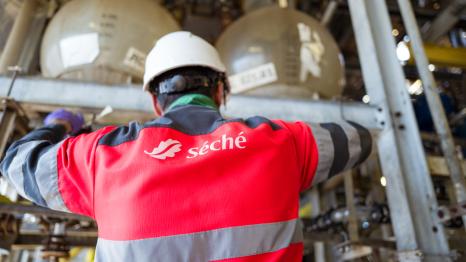Biodiversity Day 2021: 3 questions to Pierre-Yves Burlot, Head of Sustainable Development at Séché Environnement
Why is a company specializing in recycling and waste recovery like Séché Environnement so committed to the protection of biodiversity?
Today is International Biodiversity Day, but it should be remembered that, at Séché Environnement, the protection of fauna and flora has always been a commitment. Since the 1980s, the Group has made the protection of nature – we were not yet talking about „biodiversity“ – at the heart of its mission. There has always been a desire and a requirement to integrate our industrial sites into their environment and the landscape, to be exemplary in these matters. Today, these values are deeply rooted in the culture of each of our employees. This is particularly important at a time when the Group is expanding its activities internationally. Biodiversity is under threat and the fight to preserve it requires a long-term commitment, consistency and vision.
Moreover, reducing the environmental impact of the waste we collectively produce, recycling as much as possible, and accelerating the circular economy is our expertise! In terms of protecting biodiversity and life, Séché Environnement is naturally part of the solution.
In concrete terms, what does Séché Environnement do to protect biodiversity?
Five ecologists work full time in our sustainable development department. They monitor biodiversity on our industrial sites. They carry out studies and collect data which they share in complete transparency with our partners: associations such as the League for the Protection of Birds (LPO) or research organizations such as the National Museum of Natural History (MNHN). They are often called upon for certain particularly specific expertise, such as the monitoring of bats!
With the local support of our „biodiversity referents„, they are also responsible for coordinating the biodiversity strategy of each of our sites and are the guarantors of our commitments, such as biodiversity certification (Ecocert), or Act4Nature (voluntary commitment in partnership with NGOs such as the WWF).
They hold a very special place at Séché Environnement because they give their opinion in terms of pressure on biodiversity on all our development projects, and have the necessary legitimacy to change their content. Thus, on different sites, Ecologically Sensitive Areas (ESAs) are identified because of their potential biodiversity, and they are then „ringfenced“. No new construction or development can therefore be carried out there, which inevitably has economic implications. Also on their initiative, we are working on an innovative idea of a „black corridor“ on an industrial site to reduce our light emissions at night.
What are the results after more than 30 years of this proactive policy?
In terms of biodiversity, the results can only be assessed over time. Preserving an Ecologically Sensitive Area (ESA) for a few years makes no sense. On several sites, our ecologists have protected wetlands, nesting areas and other areas that are home to sensitive species. Over time, some of these areas have become the only habitat for species that have disappeared from the surrounding area, becoming true refuges of biodiversity. This makes them all the more precious! Once you commit to this approach, there is no turning back. These ESAs, which are true ecological corridors, help to preserve endemic biodiversity on a territorial scale.
Another result, of which we are particularly proud, is that we have been able to spread this passion for the environment around us. Our employees are made aware of these issues in order to better understand and protect biodiversity, and are currently participating in an internal photo contest. They regularly welcome visitors, schoolchildren and college students, thus helping to raise public awareness of ecological issues. But because we are now recognised as much for our expertise as for our results, we can have a knock-on effect beyond the scope of our industrial sites. For example, as part of an initiative we supported, the Plaine de l’Ain Industrial Park, where we have several sites, has installed some fifteen beehives.
FIND OUT MORE
Hello,
We will do our best to answer you as soon as possible.




